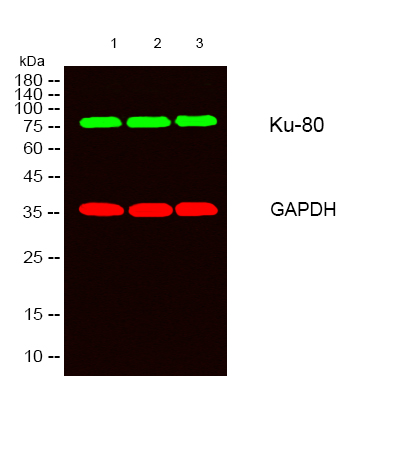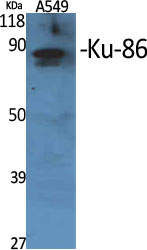CD4-FC recombinant protein
- Catalog No.:YD3061
- Reactivity:Human;
- Purity:
- >90% as determined by SDS-PAGE
- Protein Name:
- T-cell surface glycoprotein CD4 (T-cell surface antigen T4/Leu-3) (CD antigen CD4)
- Sequence:
- Amino acid:26-396,with FC tag.
- Formulation:
- Phosphate-buffered solution
- Storage Stability:
- -15°C to -25°C/1 year(Avoid freeze / thaw cycles)
- Other Name:
- T-cell surface glycoprotein CD4 ;T-cell surface antigen T4/Leu-3;CD antigen CD4;CD4;
- Function:
- Integral membrane glycoprotein that plays an essential role in the immune response and serves multiple functions in responses against both external and internal offenses. In T-cells, functions primarily as a coreceptor for MHC class II molecule:peptide complex. The antigens presented by class II peptides are derived from extracellular proteins while class I peptides are derived from cytosolic proteins. Interacts simultaneously with the T-cell receptor (TCR) and the MHC class II presented by antigen presenting cells (APCs). In turn, recruits the Src kinase LCK to the vicinity of the TCR-CD3 complex. LCK then initiates different intracellular signaling pathways by phosphorylating various substrates ultimately leading to lymphokine production, motility, adhesion and activation of T-helper cells. In other cells such as macrophages or NK cells, plays a role in differentiation/activation, cyto
- Subcellular Location:
- Cell membrane ; Single-pass type I membrane protein . Note=Localizes to lipid rafts (PubMed:12517957, PubMed:9168119). Removed from plasma membrane by HIV-1 Nef protein that increases clathrin-dependent endocytosis of this antigen to target it to lysosomal degradation. Cell surface expression is also down-modulated by HIV-1 Envelope polyprotein gp160 that interacts with, and sequesters CD4 in the endoplasmic reticulum.
- Expression:
- Highly expressed in T-helper cells. The presence of CD4 is a hallmark of T-helper cells which are specialized in the activation and growth of cytotoxic T-cells, regulation of B cells, or activation of phagocytes. CD4 is also present in other immune cells such as macrophages, dendritic cells or NK cells.

